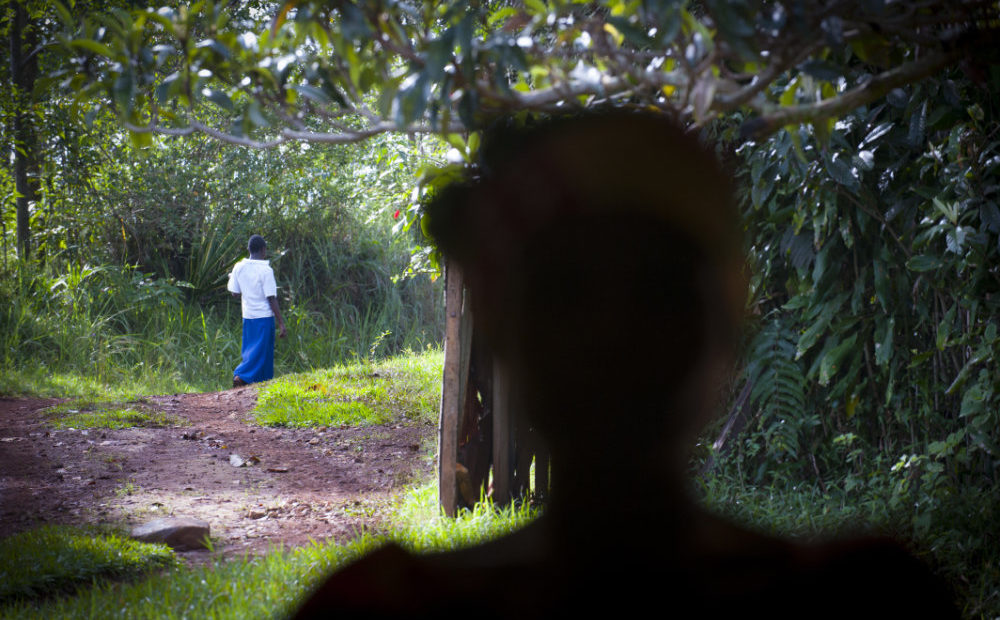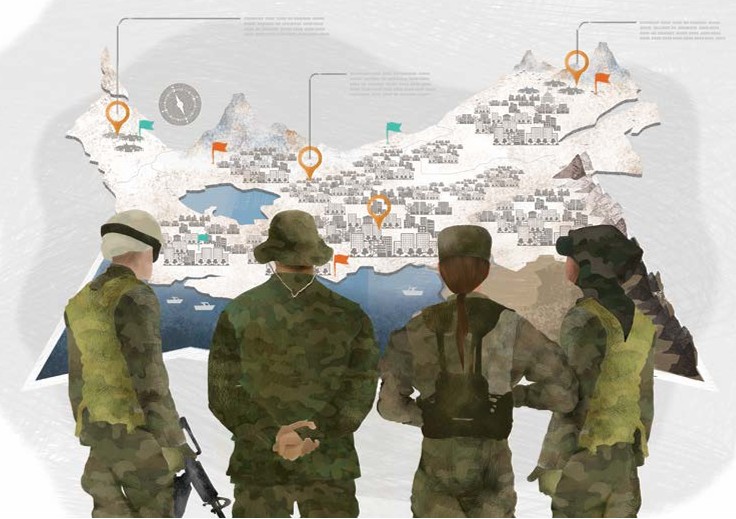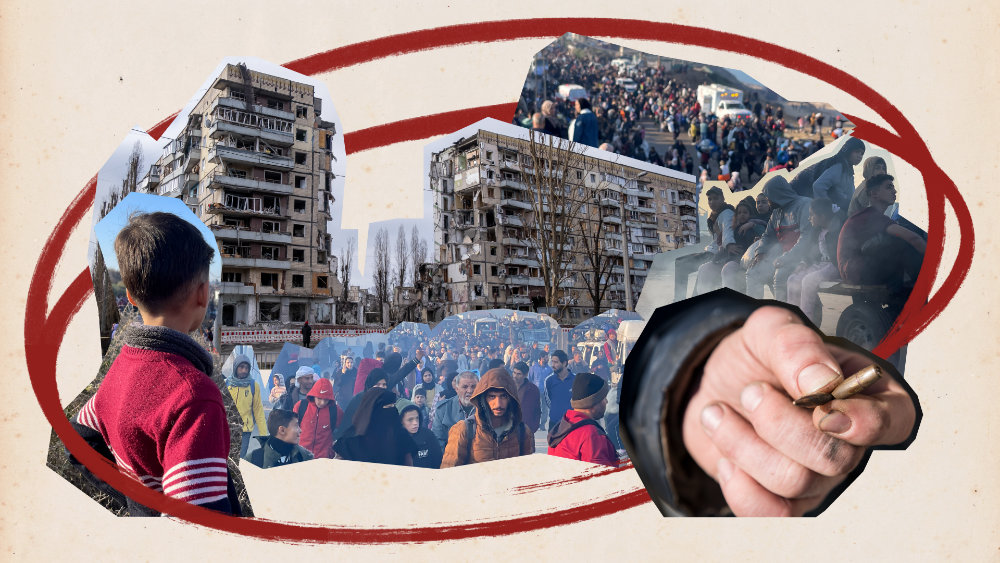Over the last decade, the International Committee of the Red Cross (ICRC) and its Red Cross/Red Crescent Movement partners, as well as other humanitarian actors responding to sexual violence, have increasingly raised concerns about mandatory reporting policies and whether they may, in fact, be harming rather than helping victims/survivors of sexual- and gender-based violence. Following its 2020 multi-country study on the unintended humanitarian consequences of mandatory reporting, the ICRC and the British Red Cross (BRC) have continuously advocated for a more cohesive survivor-centered approach that harmonizes the legitimate aims of such laws with victims/survivors’ rights to safe and confidential care.
To help practitioners and policymakers navigate these complexities, the ICRC and BRC hosted a half-day hybrid conference on 19 June 2024, during which expert panelists provided insights into the research, lived experiences, legal and law enforcement frameworks, as well as operational impact of mandatory reporting. In this post, the ICRC’s Adviser for Humanitarian Diplomacy and Policy Maria Carolina Aissa de Figueredo analyzes some of the key outcomes of these discussions while proposing concrete recommendations for how states, humanitarian actors, and communities can start to reconcile some of the existing challenges around mandatory reporting.
As part of its joint commitment to address sexual- and gender-based violence, the ICRC and its Red Cross Red Crescent Movement partners facilitate access to care for victims/survivors of sexual violence in dozens of countries. In contexts of armed conflict, this work becomes extremely complex, due to high levels of insecurity, violence, breakdown in community support networks, the collapse of public services, and mass displacement.
Another significant yet largely unexpected challenge is a legal and policy conundrum: what happens when the imperative to provide ethical survivor-centered care for the individual comes into tension with mandatory reporting requirements driven by institutional demands for greater accountability?
Mandatory reporting is a law or policy requirement that obliges public officials, including healthcare personnel, to report cases of “non-accidental injuries” to law enforcement authorities. These requirements typically extend to cases of sexual- and gender-based violence, whereby healthcare workers are either forced to report – often without the consent of the adult victim/survivor – or face criminal penalties. In several contexts, mandatory reporting laws have been introduced at the request of survivor-led organizations to address impunity, prevent future crimes, and protect victims/survivors. While these aims are fully valid, the ICRC and its Movement partners have seen firsthand how mandatory reporting requirements are rarely well understood and often imperfectly implemented in cases of sexual- and gender-based violence.
Findings from the ICRC and BRC 2020 multi-country study on this topic, Forced to Report, clearly demonstrate how confusion about who mandatory reporting applies to, when it applies, and how it should be carried out, can result in extreme divergences in practice – sometimes even within the same healthcare facility. The complications that can arise due to a lack of legal and policy clarity not only affect first responders, but may also unintentionally result in the denial of safe and dignified care for victims/survivors of sexual- and gender-based violence.
In some conflict-affected contexts, for example, victims/survivors may arrive to a hospital in critical condition only to be told they must first report to the police, even when there may no longer be a functional law enforcement presence in their area. In frontline healthcare facilities where armed actors may be present, medical staff who are mandated to report can also be at risk of violent reprisals and eventually be forced to stop working or flee the country altogether. Finally, victims/survivors in rural areas may have to wait for hours, if not days, in the same clothes they were wearing when raped because the only forensic doctor qualified to make the report is located in the capital and medical staff have been instructed by the judiciary not to provide treatment until the reporting process has been completed.
These are merely a few of the poignant and very real examples of the humanitarian impact of mandatory reporting, which underscore the expansive ethical dilemmas some healthcare providers face on a daily basis. To begin untangling some of these issues, the ICRC and BRC co-hosted a half-day hybrid conference bringing together nearly 500 policymakers and practitioners. Expert panel discussions and extensive engagement with participants helped to clarify three lines of questioning on mandatory reporting of sexual violence: what the law says about it, why states rely on it, and the impact that it has on safe and timely access to healthcare.
What do international humanitarian law and international human rights law say about mandatory reporting?
Mandatory reporting is not a ‘term of art’ in international humanitarian law (IHL) or international human rights law (IHRL). However, several obligations that exist under both bodies of law are relevant to providing a basic legal analysis of mandatory reporting.
First of all, sexual violence is a serious violation of international humanitarian law. It is a war crime that states must investigate and, if appropriate, prosecute. In order to investigate and prosecute it, however, they need to know it is happening. Given that sexual violence is so often underreported, some have argued that mandatory reporting can be a useful tool to ensure authorities know about it and take action.
Second, in situations of armed conflict, IHL requires that the wounded and sick receive the medical care and attention required by their condition with the least possible delay. This includes victims/survivors of sexual violence. IHL also provides that no distinction may be made among the wounded and sick on any grounds other than medical ones, meaning that all victims/survivors regardless of gender, age, nationality, or reporting status are equally entitled to care. Mandatory reporting requirements that impede or delay medical care are thus in tension with these obligations.
Third, IHL does not prohibit reporting, and domestic laws may contain reporting requirements for violent crimes, including things like gunshot wounds. However, at the same time, IHL protects health professionals performing their medical duties in accordance with medical ethics. This means that if reporting is required, it must be designed and implemented in a way that effectively protects access to timely medical care as well as usual medical ethics, including confidentiality.
When it comes to international human rights law, we note that in Latin America, the Inter-American Court of Human Rights examined some of the potential contradictions between medical confidentiality and mandatory reporting requirements from an IHRL perspective. In the case of Manuela et al. v. El Salvador (2021), the Court affirmed the right to confidentiality of medical information and the duty of medical personnel to ensure this confidentiality (para. 206). The court added that, while this right is not absolute, specific situations in which the medical record may be disclosed should be established by law, which must also include “clear safeguards for the protection of this [data], and the way in which the information may be disclosed, requiring that this can only be done following a reasoned order issued by a competent authority and with regards only to the necessary information for the particular case” (para. 227).
Ultimately, both IHL and IHRL reaffirm that the safety and well-being of victims/survivors and those who care for them must always be the priority, while domestic legal frameworks and policies should be aligned accordingly.
Why do states rely on mandatory reporting?
In general, states that have included mandatory reporting requirements in their domestic legislation usually do so to ensure evidence related to potential ‘crimes of public interest’ is effectively documented. When done correctly, mandatory reporting can therefore be an important tool to ensure strict chain of custody rules are respected so any evidence collected can be used in legal proceedings to prosecute crimes, including sexual violence.
Complications, however, usually surface in contexts where a range of authorities have varying degrees of obligations, commitment to, and control over the reporting process (e.g., the Ministries of Justice, Interior, and Health). While all governmental entities recognize the importance of ensuring victims/survivors have unhindered access to healthcare, tensions may arise when there is insufficient coordination across the various authorities involved in addressing sexual- and gender-based violence. Differing views about what reporting should actually look like or a reticence to recognize the serious consequences of mandatory reporting practices can subsequently generate institutional confusion which then directly impacts victims/survivors’ help-seeking behavior.
This was the case in South Sudan, for example, until the South Sudan National Police Service’s Special Protection Unit issued a new police directive in February 2024 noting that a victim/survivor’s access to healthcare must always be the priority and come before any reporting requirements. This was achieved through extensive coordination over two years, and with the support of the ICRC. According to this new directive, the entire police force is now duty bound to ensure timely access to care for victims/survivors and failure to do so could constitute police misconduct.
Although good practices on mandatory reporting in conflict-affected contexts are few and far between, the case of South Sudan demonstrates it is possible to strike a balance between the healthcare providers and law enforcement officials’ respective professional duties without compromising the safety and confidentiality of victims/survivors of sexual violence.
What impact does mandatory reporting have on safe and timely access to healthcare?
Despite the extensive policy debates around this topic, mandatory reporting remains significantly under-researched. At the time of writing, there are approximately one dozen pieces of research that examine its impact on help-seeking behavior among victims/survivors of sexual- and gender-based violence; namely, only two of those bodies of research – Forced to Report and a 2023 Geneva Centre literature review of international organizations’ guidelines on mandatory reporting – specifically deconstruct this problematic within the context of humanitarian settings.
In addition, no intersectionally-driven research exists examining the impact of mandatory reporting on child and/or male victims/survivors in humanitarian settings nor has any survivor-led or co-created research been published. Finally, there is little to no quantitative or qualitative research, including longitudinal studies, to determine whether mandatory reporting is effective as a law or policy tool or if the level of risk posed by mandatory reporting is necessary, proportionate, and effective in achieving its stated public health and security outcomes.
Nevertheless, when the scant research is combined with the extensive anecdotal evidence shared by healthcare providers and victims/survivors in humanitarian settings, there are enough indications to suggest reporting regimes that lack survivor-centered safeguards deter help-seeking behavior. Moreover, the unintended yet harmful consequences of mandatory reporting will be exacerbated when they intersect with a range of systemic barriers that already prevent victims/survivors from seeking help, including but not limited to stigma, social marginalization, and inaccessibility or lack of quality care.
In contexts where Red Cross Red Crescent Movement partners provide health services for victims/survivors, for example, mandatory reporting is compounded by a rural/urban divide. In many rural areas, victims/survivors may need to travel up to 25 kilometers to reach a basic healthcare unit. In addition to accessibility issues, victims/survivors may also face gendered barriers to disclosing incidents of sexual violence, such as a low number of female professionals in the healthcare sector, law enforcement, and the judiciary. When combined with harmful social norms, including community stigma and ostracization, victims/survivors are highly likely to be revictimized if they do report.
It is also important to recall that mandatory reporting may place healthcare workers in an impossible position. As clearly established by the World Medical Association and the ICRC in the ‘Ethical Principles of Healthcare in Times of Armed Conflict and Other Emergencies’, “if in performing their professional duties, they have conflicting loyalties, their primary obligation, in terms of their ethical principles, is to their patients.”
When mandatory reporting is articulated in such a way that it forces healthcare workers to choose between their medical code of ethics and potential criminal sanctions, it becomes a counterproductive measure which can rupture the essential relationship of trust between a victim/survivor and the healthcare provider. Furthermore, especially in situations where health-care personnel may be placed at risk of retaliation for reporting, mandatory reporting could result in a de facto refusal to treat victims/survivors. This may force victims/survivors to travel even greater distances when seeking care and/or resort to non-specialized care simply to circumvent the reporting obligation.
Conclusion
To advance conversations around how to balance states’ accountability-related needs with respect for the agency, safety, and dignity of victims/survivors, it is useful to reflect on some of the key conclusions emerging from the ICRC-BRC’s June 19 Mandatory Reporting Conference:
- Domestic legal frameworks, including those regulating mandatory reporting, must be compatible with IHL and IHRL obligations to provide timely, appropriate and non-discriminatory medical care for victims/survivors. In all cases, reporting should never be a precondition for accessing care.
- Reporting should be an informed, voluntary, and consensual process. Whenever possible, identify solutions that promote fully informed voluntary reporting, that protects the safety, privacy and dignity of victims and survivors, and reduces the risk of revictimization. This could take the form of anonymized reporting that only includes aggregate data while providing clear safeguards for the protection of sensitive personal and health data, and strictly regulating the exceptional cases when and how such information – including digital information – may be disclosed.
- Further analysis and coordination among governmental entities overseeing reporting mechanisms are key. Relevant authorities, and especially Ministries of Justice, Interior, and Health, need to directly engage with survivor-led organizations and service providers to develop an evidence-based analysis of the impacts of mandatory reporting on access to health care and exposure to secondary harm, as well as on the effectiveness of mandatory reporting in achieving its stated aim of improving prevention, protection and prosecution. If this effectiveness is evidenced, the analysis should then assess whether the level of risk faced by victims/survivors and healthcare providers who are forced to report is both necessary and proportionate to the effectiveness of mandatory reporting. If there is clear evidence to suggest such a tool will be of added value, each Ministry or entity should outline its expectations, needs, and red lines on reporting of sexual- and gender-based violence. Policies or standard operating procedures for reporting should be co-signed by all relevant actors to ensure there is a common understanding and approach on the matter.
- Local healthcare and legal systems must also be strengthened, not only in terms of the number of personnel, but also their capacity to provide quality, accessible, and gender sensitive care. If reporting systems are in place, the burden to report should not be on the individual healthcare provider or the victim/survivor, but rather, on the medical facility’s administrative entity.
- Finally, community education and stigma reduction are critical for creating conducive environments for safe disclosures of sexual- and gender-based violence. Community leaders, as well as local media, can play an important role in passing positive, stigma-reduction messages, providing platforms to amplify victims/survivors’ asks, and sharing factually accurate information about where and how to seek help. This can also include information about what services are available as well as what types of reporting systems or requirements exist.
States and humanitarian actors have long agreed to adopt a survivor-centered approach by preventing and responding to sexual violence. While no efforts should be spared to prevent sexual violence altogether, reporting mechanisms must ensure they are respectful of victims/survivors safety, confidentiality, and agency at all times.
See also:
- Peixuan Xie, What are the transformative potentials of sexual and reproductive health and rights in humanitarian assistance: a feminist inquiry, April 18, 2024
- Megan O’Brien, Online violence: real life impacts on women and girls in humanitarian settings, January 4, 2024
- Hana Salama, Sexual violence in conflict and weapons: unpacking the links for better prevention, September 28, 2023
- Sandra Iman Pertek, Ahmed Al-Dawoody, Amjad Saleem, Sexual and gender-based violence in migration contexts: does faith sensitivity matter?, September 21, 2023






Comments